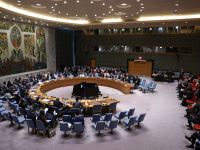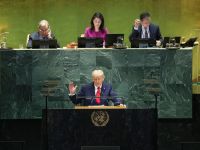Sadaf (Saudi Petrochemical Company) stands on a 460 acre site in Al-Jubail Industrial City on the east coast of the Kingdom of Saudi Arabia. The company was formed in 1980 as a joint venture, with Saudi Basic Industries Corporation (SABIC) holding a 50 percent shareholding and Shell the other 50 percent.
The plant was designed with the help of Shell and a commitment to transfer technology and to train Saudi personnel to manage and run the plant. Today, the complex has a combined output of over 4.7 million metric tones per annum (mtpa).
Products produced are ethylene (1.1 million mtpa), ethylene dichloride (840,000 mtpa), methyl tertiary butyl ether - MTBE (700,000 mtpa), caustic soda (670,000 mtpa) and crude industrial ethanol - CIE (300,000 mtpa).
Before June of this year, Sadaf's output of styrene from its Styrene 1 plant was 560,000 mtpa, but with the start up of the company's new Styrene 2 plant, which came on line in June, that output will now reach 1.1million mtpa.
'Shell in the Middle East' visits Al-Jubail to see the new plant and to talk to Mohammed Thara, Project Manager for the Styrene 2 Expansion Project, and Abdulrahman Al Hamad, Manager of the Styrene Department.
"Sadaf used to have just one styrene plant, which has been here since the beginning, in 1985, and is based on Raytheon technology," explains Moh'd Thara, Project Manager for Sadaf's Styrene 2 Expansion Project.
"Styrene 1 produces 560,000 metric tones per annum and uses benzene, which we mostly get from Sasref (Saudi Armco and Shell Refinery), and ethylene, which we produce here at Sadaf in our own ethylene plant.
"I am happy to say that Styrene 2, which came on line in June of this year, was completed on time under budget at a total cost of US $300 million. The project began in December 1996, with construction starting in May 1998. The plant was completed in March 2000.
"When the plant is in full production it will have a capacity of some 500,000 metric tones per annum, and the combined production capacity of the two plants will make Sadaf the largest single plant styrene producer in the world.
"Styrene 2 uses ABB Lummus technology and is the largest plant ever designed by that company. Whilst the basic engineering was done by ABB Lummus, the detailed engineering, procurement and construction were carried out by Daelim of Korea.
"The mechanical aspect of this plant is unique in that the ethyl benzene styrene monomer splitter, which weighs in excess of 950 metric tones when empty, and the waste heat exchanger, which is a triple decker, are the largest in the world. This is also the first time that a main condenser has also been used as an air cooler using an 'A' frame.
"A project' s success is judged by not only meeting but exceeding internal and external customers' expectations," says Mohammed. "This process was like an orchestra playing a prescribed piece of music in complete unison."
"Styrene 2 was a challenging project from all aspects, because of the detailed engineering required, because of the fact that the technology had to be designed beyond typical plant capacities, because of the sheer size of the machinery needed, and because of the need to build the plant higher than normal due to the lack of space.
It also had to be built in the middle of an existing operational petrochemical complex," explains Abdulrahman Al Hamad, Manager of the Styrene department.
"During construction, we implemented a 'build it clean' programmed, which meant that we cleaned up as went along, which reduced the pre-commissioning time. Start-up was carried out in a sequence which was carefully monitored to ensure that all prerequisites were met from stage to stage.
"Considering the sheer size of the project, the glitches we encountered along the way were few. Sadaf is a 'Learning Organization' and during the project we picked up many opportunities all round."From conception to start-up, the project has been Saudi-led, and of this we are very proud.
"The team has consisted of both operations staff and project management staff and the close co-operation between the two has ensured a world-class performance.
"Of course, we have also had help from the licensor and from the vendors, and Shell assistance has been made available to the project when required in an advisory capacity," he concludes.
Source:Shell.com/me
© 2000 Mena Report (www.menareport.com)







